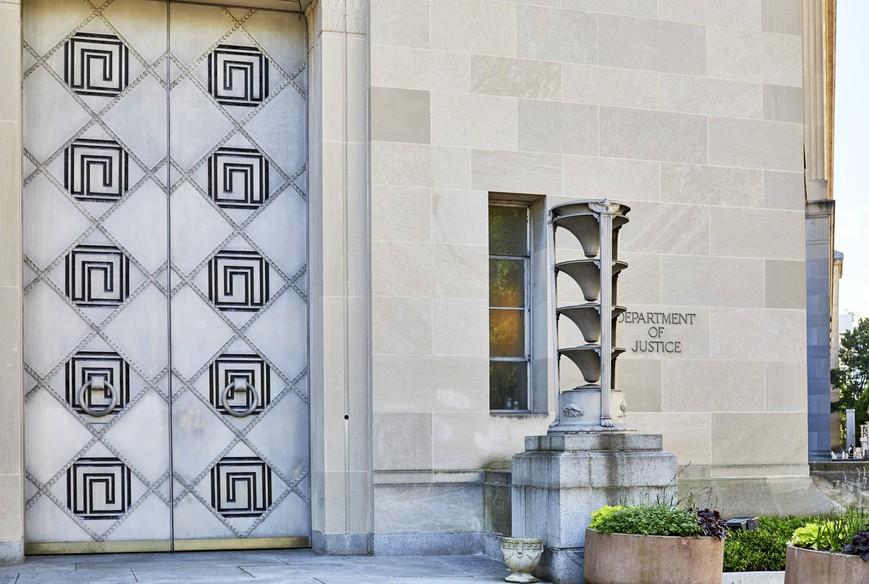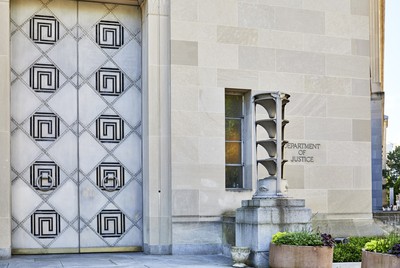

IGT requests a declaratory judgment that the 2018 OLC Opinion is contrary to law and that the Wire Act applies only to 'bets or wagers on any sporting event or contest.’
A 30-day extension on a court case that could settle the issue of interstate online poker in the United States expires this week. Soon, we might know a lot more about how the US Department of Justice plans to defend itself against a legal challenge on its muddled Wire Act stance.
The case is IGT et al v. Garland et al. in the Rhode Island District Court. IGT is the largest provider of iGaming and lottery services in the United States. It filed suit against the DOJ in November seeking clarity around the Wire Act.
As first reported on US Gaming Review earlier this month, in January, the Department of Justice asked for, and was granted, a 30-day extension to respond to the lawsuit. That extension expires this week — on Wednesday, February 23 — though US gaming law attorneys warn it could be the first of several extensions.
Even so, we could soon see just how the Biden DOJ plans to defend its position.
Why IGT’s Case Could Help US Online Poker
The case is not specifically about online poker, but its settlement could clear up remaining concerns about interstate online poker.
In 2018, the Trump-era Department of Justice tried to broaden the scope of the Wire Act to cover other forms of online gambling, including poker. In 2021, this interpretation was rejected in court. The DOJ lost its appeal on the issue, then chose not to take the matter to the Supreme Court.
While there was hope this would put the matter to rest, the ruling was narrow in scope — it applied to the plaintiff only. This left a lingering concern among some state regulators, operators and other stakeholders around the scope of the Wire Act.
IGT, concerned it could still face litigation, wants this cleared up once and for all — it has asked a Rhode Island Court to make a definitive ruling that the 2018 opinion is contrary to law, and that the Wire Act does applies only to sporting contests.
If the court rules in this case broadly, it will clear up the question of interstate online poker once and for all.
The Wire Act and Online Poker: A Timeline
- 2002: Bush DOJ advises Nevada regulator that Wire Act applies to online casino gambling.
- April 2011: Obama DOJ uses Wire Act as tool for online poker crackdown, aka Black Friday.
- December 2011: DOJ letter clarifies Wire Act limited to sports betting.
- December 2018: Trump administration DOJ reinterprets the Wire Act.
- February 2019: New Hampshire Lottery Commission (NHLC) challenges this opinion.
- May 2019: New Jersey Attorney General files suit following FOIA request.
- June 2019: Judge rules in favor of NHLC.
- June 2019: DOJ appeals decision and extends enforcement deadline.
- January 2021: United States Court of Appeals for the First Circuit upholds lower court decision.
- March 2021: January decision formalized; 90-day window on filing case with Supreme Court begins.
- June 2021: Window closes on Supreme Court appeal.
- November 2021: IGT files lawsuit against DOJ.
- January 2022: DOJ requests and is granted an initial 30-day extension
- February 23, 2022: Initial 30-day extension expires.
The Wire Act and US Online Poker: How We Got Here
The Wire Act is a 60-year old statute targeting organized criminal gangs that were operating illegal bookmaking across state lines. Historically, this act was generally held to only apply to sports betting. However, in 2002, the DOJ altered its stance, advising the Nevada Gaming Control Board — which sought clarification on the statute — that it believed the Wire Act also applied to online casino gambling.
Three years later, the DOJ warned the Illinois Lottery that the law also applied to the purchase of lottery tickets online. The Wire Act was later used in the Black Friday crackdown of online poker.
However, in 2011, in response to an inquiry from Illinois and New York asking for further clarity, Obama’s Office for Legal Counsel (OLC) issued an opinion reaffirming its earlier stance that the Wire Act applied only to sports betting.
But that changed once again in 2018. The Trump DOJ reversed course yet again, widening the scope of the Wire Act to include lotteries and online gambling. The result was the filing of several lawsuits that culminated with the January 2021 ruling in the First Circuit.
One case was brought by the New Hampshire Lottery Commission (NHLC). In 2019, a District Court sided with the NHLC, limiting the Wire Act to only sports betting. The DOJ appealed — that appeal was lost. The Department of Justice had the option to take the case to the US Supreme Court. However, this deadline expired in June 2021.

Despite Wins in Court, a Lack of Clarity Still Remains
One might think this would put the issue to bed, and indeed, at the time, there was optimism in the US online poker industry that states would move forward with permitting operators to share liquidity across state lines. The single existing cross-state poker network — the 888/WSOP network spanning Nevada, New Jersey, and Delaware — remains online today and has faced no legal challenge.
However, states have remained hesitant to move forward. There has been some effort from the Michigan regulator — it told pokerfuse recently that it was engaged in dialogue with other state regulators to join the MSIGA — but its counterparts in Pennsylvania have stated that more clarity was needed.
Many experts in the field believe the matter has been put to rest — various gaming attorneys told pokerfuse after the deadline expiration that there was little doubt that interstate online poker was legal.
“The decision of the Biden administration not to appeal the New Hampshire decision should cement the legality of interstate non-sports wagering at this time and lead to more compacts,” stated one. The DOJ had “essentially succumbed to the correct interpretation of the Wire Act,” added another.
However, State Attorneys General and existing operators remain cautious because the NHLC decision was limited in scope — it applied only to the plaintiffs in that case. In a letter cosigned by 26 AGs, it urged the DOJ to clarify its position and disavow the Trump-era reversal. No such clarification has come.
IGT Court Case Wants a Broader Ruling on the Books
Thus, the IGT court case wants clarity on the issue.
“The lottery and gaming industry, including IGT and its state partners, developed around a shared understanding that sports betting was the Wire Act’s sole concern,” the company stated in its initial complaint. “The 2018 OLC opinion fundamentally imperils that understanding, and IGT’s businesses and partners face a credible threat of prosecution,”
Because the NHLC decision was narrow in focus, “IGT’s entire non-lottery gaming business is subject to prosecution,” the complained reads, “and DOJ has offered only the promise of a 90-day heads up before it can subject IGT’s lottery business to the Wire Act as well. “
“IGT, therefore, seeks a declaratory judgment that … the Wire Act does not apply to IGT’s non-sports gaming operations,” it went on to say. However, in its prayer for relief, its request was broad: “Declare that the Wire Act applies only to 'bets or wagers on any sporting event or contest.’”
If this is granted, the ruling would address the remaining concerns over the Wire Act and its applicability to US online poker.
Extension is Likely Procedural — Though the DOJ Could be Formulating a New Approach
The 30-day extension from the DOJ is procedural and very normal, experts told US Gaming Review. IGT declined to comment. Extensions like this are usually granted for all manner of reasons, including the workload of the lawyers, even for personal reasons.
However, there is a chance that the request for a delay was because the DOJ was working on a new position.
“It is possible DOJ is kicking the can down the road a bit because it has not yet formulated a policy position which would be evident in their answer,” Saiber LLC’s Jeremy Kleiman told USGR. “Or the parties could be talking and trying to resolve the case without the necessity of DOJ filing an answer.”
We will find out soon — this week, we could see the first filings from the Department of Justice in the case. It will be the first time Biden’s DOJ has shown how it plans to deal with the muddle left by the previous administration.
US District Court Judge William Smith — nominated by President George W. Bush in 2002 — presides over IGT et al v. Garland et al. The DOJ extension expires on February 23, 2022.

